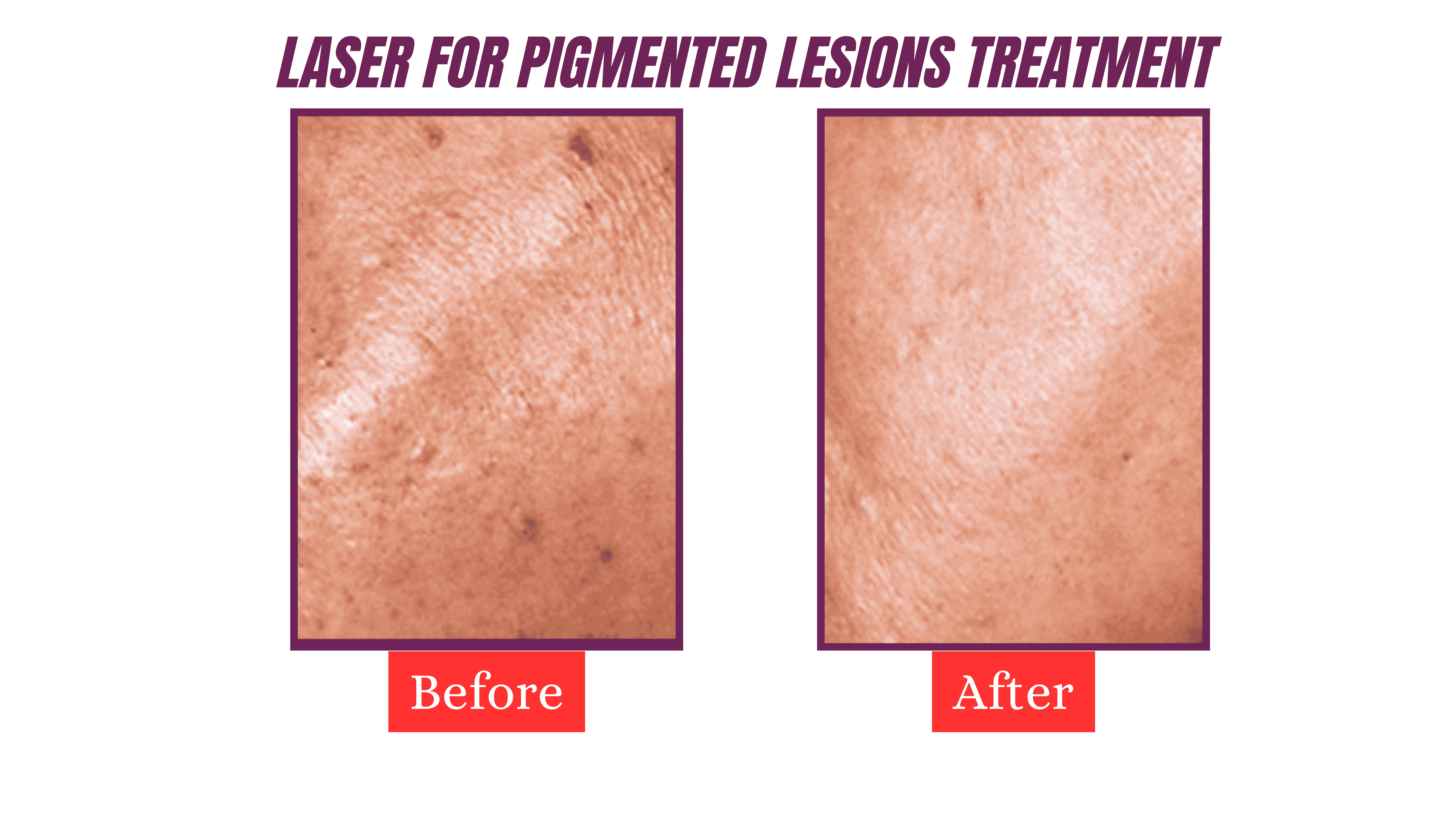Laser For Pigmented Lesions
Avoiding complex health issues such as allergy need to be identified during the early stages in order to experience the optimum results. Allergens and pollens cause major problems due to which proper health benefits are not realized.
Laser tattoo removal is a safe and straightforward procedure. During the process, laser rays are directed at the tattoo, where they are absorbed by the ink. This causes the tattoo ink molecules to break down, gradually removing the tattoo. Typically, 2 to 4 sessions are needed to completely remove a tattoo.
Pigmented lesions, which result from excess melanin in the skin, can be treated through various therapies. To prevent pigmentation, it's essential to:
- Protect your skin from sun exposure.
- Apply sunscreen whenever outdoors.
- Use pigmentation-targeting sprays, face washes, and prescribed medications.
The treatment typically begins with medication, followed by advanced techniques like:
- Laser treatments.
- Carbon dioxide (CO2) lasers.
- Skin rejuvenation treatments.
- Q-Switch laser treatments.
Laser treatment is a non-surgical, effective option for addressing pigmented lesions and moles. The laser emits short pulses of visible light, which raise the temperature of the melanin deposits, causing the cells producing excess melanin to break down. As the body regenerates new skin cells, the pigmented area returns to its natural appearance. This method is quick, efficient, and does not require any surgical instruments.
Pigmented lesions typically occur due to infections in the deeper layers of the skin and excessive melanin production. Other factors contributing to pigmentation include:
- Heat Exposure: Prolonged exposure to heat or ultraviolet (UV) rays can damage melanocytes (cells responsible for skin color), leading to pigmentation.
- Injury: After an injury, slight inflammation may remain, and over time, this can develop into pigmentation.
- Diseases: Certain illnesses, such as jaundice, can alter the skin's color, leading to the formation of lesions.
Additionally, stress, poor blood circulation, and pregnancy can contribute to pigmentation. Hormonal imbalances and improper blood cell functioning are also key triggers for the development of pigmented lesions.
CAN I AND MY FRIEND GO FOR LASER?
Yes. Laser works for all skin types, uneven skin tone, on age spots, dark spots, freckles and melasma. It can lighten your natural skin tone.
WHAT KIND OF AFTER CARE IS NEEDED?
Apply ice religiously for 2 days post the laser treatment. Use sunscreens above SPF 30 and moisturise the skin properly. Avoid hot showers and swimming.
IS IT SAFE?
All lasers are safe if conducted under expert supervision.
I HAVE CLEAN SKIN. CAN I GO FOR SKIN WHITENING TREATMENT?
Yes! Laser is a fast effective method to reduce melanin pigmentation and aims at achieving light skin tone/lightening.
HOW MANY TREATMENTS WILL I REQUIRE FOR THE REMOVAL OF DARK SPOTS?
Average 6-12 sessions are required depending on pigment severity, medication, extent of sun damage etc.
HOW DOES LASER REMOVE DARK SPOTS?
Laser is easily absorbed by the skin. It helps in removing irregular damaged skin cells and stimulating new skin cells to give way to light and young-looking glowing skin.
WHAT ARE THE CAUSES OF DARK SPOTS ON FACE?
Environmental factors , hormonal changes, UV light, sun spots, medications, pigmented lesions etc.
Results

